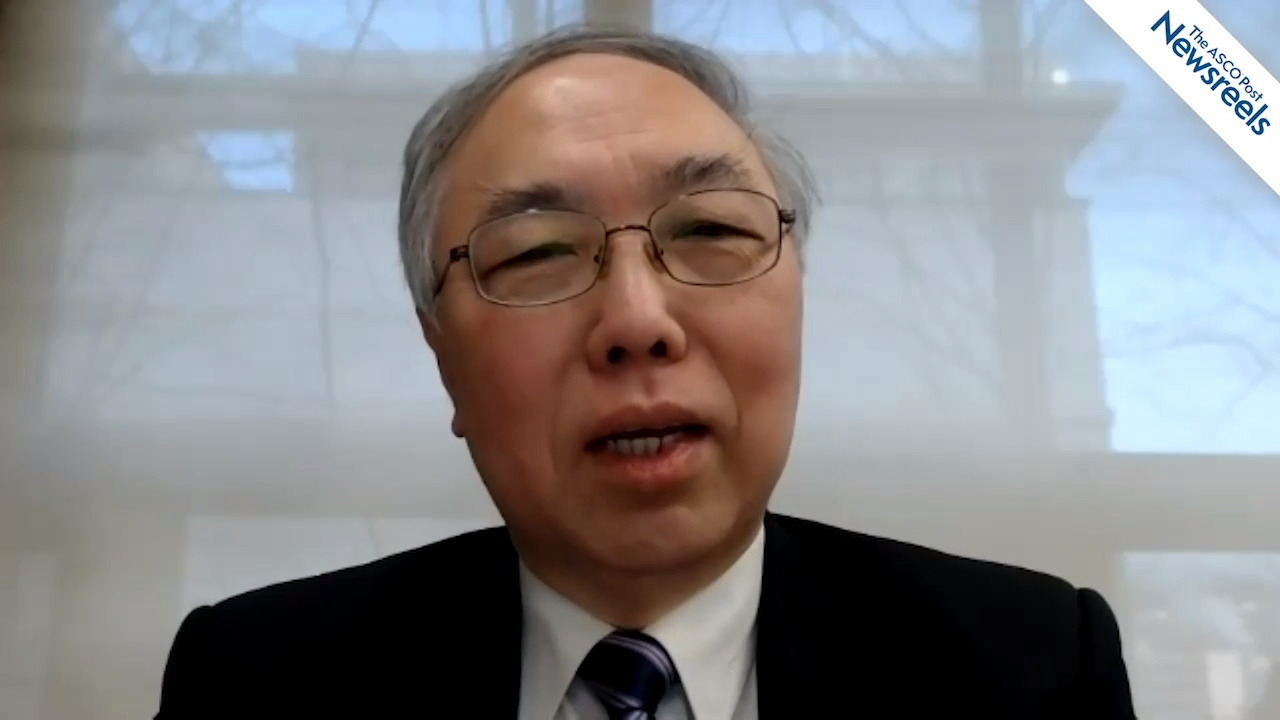Charles N. Landen, MD, on Newly Diagnosed Ovarian Cancer: BRCA Mutations, PD-L1 Expression, and Combination Chemoimmunotherapy
SGO 2021 Virtual Annual Meeting on Womens Cancer
Charles N. Landen, MD, of the University of Virginia, discusses results from the first clinical trial in ovarian cancer to demonstrate that neither a BRCA1/2 mutation nor a homologous recombination deficiency improves sensitivity to a therapeutic PD-L1 blockade in patients receiving atezolizumab vs placebo combined with carboplatin, paclitaxel, and bevacizumab for newly diagnosed disease (ID #10240).
The ASCO Post Staff
Alice P. Barr, MD, of the Carolinas Medical Center and Levine Cancer Institute, discusses results from a retrospective study, which showed that progression-free and overall survival appeared to be no different with open surgery and minimally invasive surgery for interval debulking after neoadjuvant chemotherapy in women with advanced epithelial ovarian cancer. Perioperative outcomes also seemed to be superior with minimally invasive surgery (ID #10209).
The ASCO Post Staff
Hyun C. Chung, MD, of Yonsei Cancer Center and Yonsei University College of Medicine, discusses phase II findings from the KEYNOTE-158 study, which support the use of pembrolizumab for patients with recurrent or metastatic cervical cancer that has progressed on or after chemotherapy and whose tumors express PD-L1.
The ASCO Post Staff
Andreas Obermair, MD, of the University of Queensland and Queensland Centre for Gynaecological Cancer Research, discusses data on a hormonal IUD used to treat women with the precursor lesion endometrial hyperplasia with atypia (EHA) and those with stage I endometrial adenocarcinoma (EAC). At 6 months, the data showed a complete pathologic response in 82% of patients with EHA and in 43% of those with EAC (ID# 10244).
The ASCO Post Staff
Brian M. Slomovitz, MD, of Florida International University, describes how emphasizing diversity and shifting away from clinical trials at universities helped The GOG Foundation, Inc., increase patient accrual by 50% in 2020 (ID # 10215).
The ASCO Post Staff
Brittany A. Davidson, MD, of Duke University, discusses the development and validation of the GO-POP model (Gynecologic Oncology Predictor of Postoperative opioid use), an individualized patient-centered predictive tool designed to help avoid overprescribing pain medications (ID# 10253).





